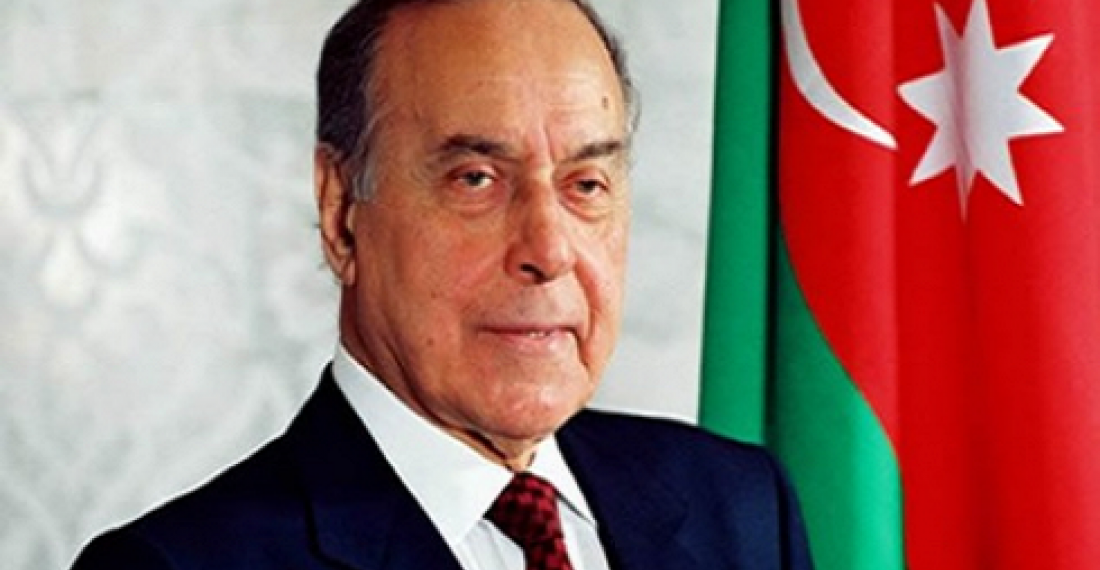Commentary: Dennis Sammut, Director of LINKS Analysis comments on Heidar Aliev and his legacy.
Azerbaijan is marking the 90th anniversary of the birth of Heidar Aliev, hailed as the national leader by the government headed by his son, but derided as the founder of a despotic political dynasty by its opponents.
Heidar Aliev was born on 10 May 1923 in the Azerbaijani province of Nakhichevan. After a career in the Soviet KGB Aliev was appointed by Leonid Brezhnev as leader of Soviet Azerbaijan from 1969 to 1982, and from 1982-87 he was also member of the Politburo of the Communist Party of the Soviet Union. Heidar Aliev was President of Azerbaijan from 1993-2003, when he was succeeded by his son Ilham.
After the collapse of the USSR Heidar Aliev retreated to his home province, the Autonomous Republic of Nakhichevan, as the country reeled under the pressure of economic collapse, ethnic tensions and a war with neighbouring Armenia. In the summer of 1993 amid fears that Azerbaijan was going to disintegrate Aliev returned to Baku with a group of followers and was shortly afterwards appointed as Chairman of Parliament, a stepping stone to the Presidency which he assumed a few months later.
Heidar Aliev was a shrewd political operator. In the early years of his presidency he used different means to stabilise the country - hunting down some of his opponents, making alliances with others. He galvanised to his cause the old communist nomenklatura, but made sure it was divested of all ideology. He cut his losses on Karabakh, agreeing to a cease fire, and left the task of regaining the lost territories for another day. He then set out to rebuild Azerbaijan around a new national idea "Azerbaijanism".
In a speech to the first congress of Azerbaijanis of the world Aliev stated,
"We are Azerbaijanis. Azerbaijan is a motherland to us all. This land has reared us as a people, as a nation, as human personalities. Therefore a spirit of Azerbaijanism, the idea of Azerbaijanism, should become a bond linking us together and prodding us towards a still tighter cohesion. Every state has a national ideology of its own. The national ideology of the independent Azerbaijan Republic is the ideology of Azerbaijanism."
By propagating Azerbaijanism Aliev was not only giving the emerging state a national narrative, he was also distancing himself from the previous government of Abdelfaz Elchebey which had firmly anchored itself in Pan-Turkism, as well as from those who saw Azerbaijan as being primarily a Shia Islamic nation that should have close links with neighbouring Iran. Aliev also cautiously opened up relations with the west, and was instrumental in the signing of the "deal of century", an agreement that led to the exploitation of Azerbaijani natural resources in collaboration with major western companies, such as BP. Heidar Aliev also pushed for Azerbaijan's integration with European institutions, and took all measures that were necessary so that Azerbaijan could join the Council of Europe. By appointing his son Ilham as the first Head of Delegation to the Council of Europe he was signalling the importance that the new Azerbaijan attached to the European idea. During his Presidency Heidar Aliev carefully balanced relations with Russia and Turkey - establishing good relations with both, but giving neither too much influence.
When Heidar Aliev died in 2003 he was succeeded by his son, Ilham the current President of Azerbaijan, in a move which critics saw as the establishment of a dynastic republic. Critics of the Alievs say that this is a political dynasty based on repression and feudalism. Ironically, many Azerbaijani opposition activists now look back to the time of Heidar Aliev as a time when political dissent in the country was possible, even if under some restrictions.
There is no doubt that Heidar Aliev was instrumental in stabilising Azerbaijan after the trauma of the early 1990s, and for establishing the basis for a modern and successful state. On this day marking his 90th birthday Azerbaijanis have an opportunity to reflect if the price paid was too high, or if it was justifiable.
source: This commentary by Dennis Sammut was contributed to commonspace.eu







